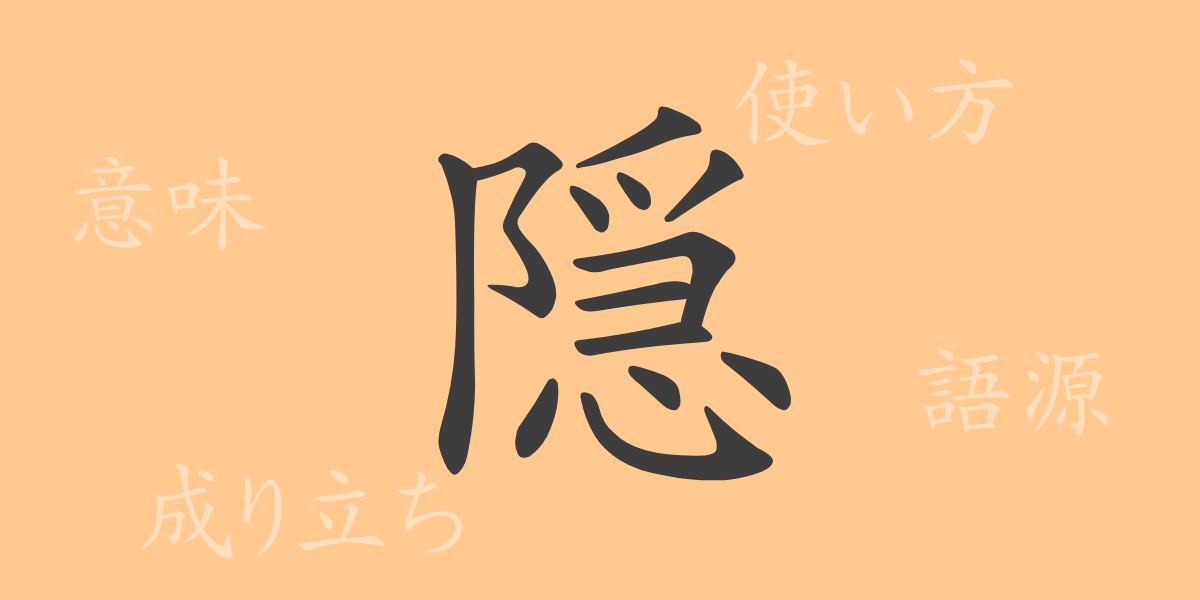“
The Japanese kanji “”隠”” (In), which plays a vital role in the rich expressiveness of the Japanese language, is imbued with the culture and philosophy deeply rooted in our daily lives. This article explores the etymology of the kanji “”隠”” (In), its meanings and usage, and delves into idioms and phrases that resonate with the Japanese spirit. Join us on a journey to touch upon the depth of a single kanji character and rediscover the beauty of the Japanese language.
The Origins (Etymology) of 隠 (In)
The kanji “”隠”” (In) originally consisted of the characters for “”mountain”” (山) and “”heart”” (心). It came to mean hiding things or oneself, as in hiding in the mountains. This character symbolizes the wisdom of living within nature and the richness of the inner world.
Meanings and Usage of 隠 (In)
“”隠”” (In) has meanings such as “”to hide,”” “”to conceal,”” and “”to keep secret.”” In everyday life, it is used in various scenarios, from physically making something invisible to keeping information or emotions from others. It also includes the psychological aspect of hiding one’s inner self or true nature from others.
Readings, Number of Strokes, and Radical of 隠 (In)
Basic information about the kanji “”隠”” (In) is as follows:
- Readings: Onyomi (Chinese reading) (In), Kunyomi (Japanese readings) “”Kaku-su”” “”Kaku-reru”” “”Yo-ru
- Number of Strokes: 14
- Radical: 阜 (Kozatohen) or 阝 (Okagawari)
Idioms, Phrases, and Proverbs Using 隠 (In) and Their Meanings
There are various idioms, phrases, and proverbs that include the kanji “”隠”” (In), such as:
- 隠居 (Inkyo): Retiring from one’s job to live a quiet life.
- 隠微 (Inbi): Extremely subtle and not easily understood or perceived.
- 隠忍自重 (Inninjityou): Patiently enduring and not acting rashly.
- 隠者 (Injya): A hermit who has renounced the world to live in seclusion.
- 隠語 (Ingo): Words that are only understood within a certain group or words with a specific hidden meaning.
Conclusion on 隠 (In)
The kanji “”隠”” (In) is an indispensable element in expressing actions and psychology closely related to our lives. With its wide range of meanings, from the act of hiding things to the attitude of keeping one’s feelings secret, this character tells the story of the richness of Japanese expression. Through idioms and phrases, we can see how deeply it is rooted in the lives, culture, and thoughts of the Japanese people. By understanding the diverse meanings of this kanji and using it appropriately in daily communication, we can achieve more nuanced expressions.
“

























